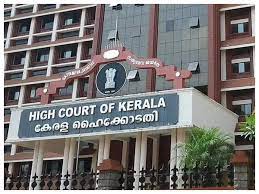 Facts of the Case: In this case, the petitioner filed writ petition challenging the proceedings initiated under Section 129 of the CGST Act regarding the detention of goods in transit. The vehicle of the petitioner was intercepted by GST authorities during transit from the petitioner’s registered premises to the purchaser. The documents produced at interception included an invoice and an E-way Bill, as recorded in Form GST MOV-01. Subsequent to interception, orders were issued for physical verification and detention of goods (Form GST MOV-06).
Facts of the Case: In this case, the petitioner filed writ petition challenging the proceedings initiated under Section 129 of the CGST Act regarding the detention of goods in transit. The vehicle of the petitioner was intercepted by GST authorities during transit from the petitioner’s registered premises to the purchaser. The documents produced at interception included an invoice and an E-way Bill, as recorded in Form GST MOV-01. Subsequent to interception, orders were issued for physical verification and detention of goods (Form GST MOV-06).
The Petitioner contended that the vehicle was accompanied by the invoice and E-way Bill, which are the only mandatory documents under Rule 138A of CGST Rules. The notices allege absence of valid documents but fail to specify these documents.
The petitioner claims the proceedings were initiated solely on the ground that he failed to produce documents relating to the purchase of goods from an unregistered dealer, which is not a requirement for transit compliance under Rule 138A.
Issue: Whether the proceedings under Section 129 of the CGST Act against the petitioner are legally sustainable despite production of invoice and E-way Bill during interception, and whether failure to produce documents evidencing purchase from an unregistered dealer can justify detention and penalty.
Held that: The court found merit in the petitioner’s submissions that the vehicle was accompanied by the required documents i.e. invoice and E-way Bill at the time of interception, fulfilling the statutory requirements under Rule 138A of the CGST Rules.
The contention that proceedings were initiated because the petitioner failed to produce documents evidencing purchase from an unregistered dealer was held not to justify the detention under Section 129, as the obligation is only to carry documents issued by the registered supplier. The absence of any mention of purchase documents from an unregistered dealer in the original notices renders the subsequent reliance on such discrepancy irrelevant and unsustainable.
The respondent’s reliance on the driver’s statement that the E-way Bill was not available at journey commencement but produced later was a disputed fact and was not part of any show-cause notice or detention order, thus could not be relied upon to justify detention.
The Court held that the proceedings initiated under Section 129 were therefore held to be not legally sustainable. The vehicle and goods were ordered to be released immediately.
Case Name: Ajith Gopi vs. State of Kerala, Thiruvananthapuram dated 25.07.2025
To read the complete judgment 2025 Taxo.online 1778


